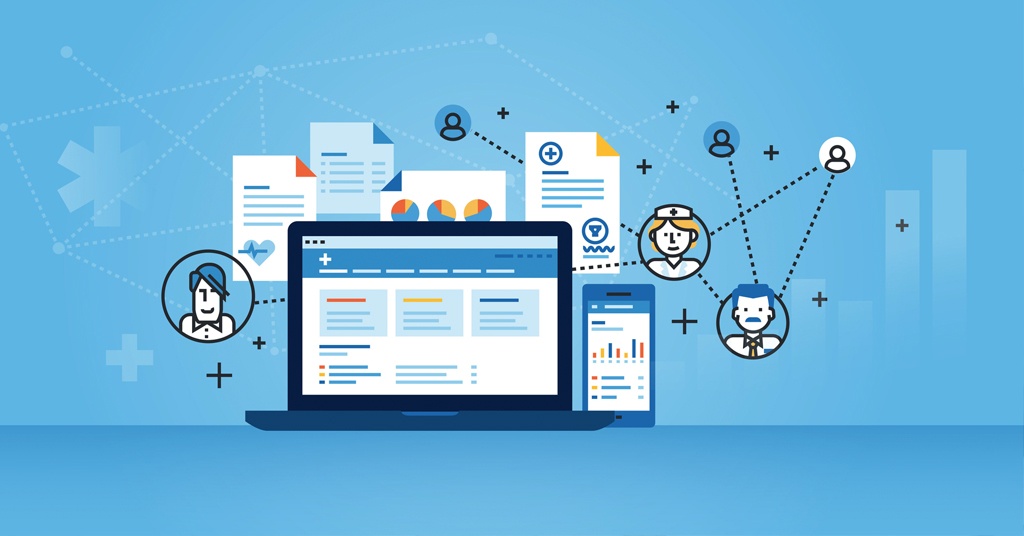Pharma Marketing: Multichannel vs. Omnichannel

What is Multichannel Marketing?
Multichannel marketing refers to the use of multiple communication channels to reach your target audience. The goal of multichannel marketing is to create a seamless and integrated experience for consumers by providing them with information and interactions across various channels. This includes traditional channels like print, television, and radio, as well as digital channels like email, social media, and mobile applications.
Benefits of Multichannel Marketing for Pharmaceutical Companies
- Increased Reach
Multichannel marketing allows pharmaceutical companies to reach a wider audience than traditional marketing channels. This is because consumers are increasingly using multiple channels to consume information and engage with brands. By using multiple channels to reach your target audience, you can increase the likelihood of being seen and remembered by potential customers.
- Improved Engagement
Multichannel marketing means pharma companies engaging with customers in a more meaningful way. By providing customers with information and interactions across multiple channels, you create a more immersive and personalized experience. This improves customer loyalty and the likelihood of customers taking action, such as an HCP requesting a sales meeting or a patient inquiring to their physician about your drug.
- Increased Effectiveness
Multichannel marketing can be more effective than traditional marketing channels because it allows you to tailor your message to different segments of your target audience. By using different channels to reach different segments, you can provide more relevant information to each group, increasing the likelihood of conversion.
- Greater Insight
Multichannel marketing provides pharma companies with greater insight into customer behavior and preferences. By tracking customer interactions across multiple channels, you can gain a better understanding of how customers interact with your brand and adjust your marketing strategies accordingly.
Strategies for Implementing Multichannel Marketing for Pharmaceutical Companies
- Identify Your Target Audience
The first step in implementing a multichannel marketing strategy is to identify your target audience. This includes understanding their demographic information, interests, and behaviors. By knowing your audience – from patients to HCPs, investors, career seekers and clinical trial candidates – you can tailor your message and choose the most effective channels to reach them.
- Choose Your Channels
Once you have identified your target audience, you need to choose the channels that are most effective for reaching them. This can include traditional channels like print, television, and radio, as well as digital advertising channels like email, social media, and mobile applications. Each channel has its own advantages and disadvantages, so it is important to choose the channels that are most appropriate for your target audience and marketing goals.
- Create a Consistent Message
Creating a consistent message across all channels is essential for effective multichannel marketing. This includes using consistent branding, messaging, and imagery across all channels to create a cohesive experience for customers.
- Track and Analyze Customer Interactions
Tracking and analyzing customer interactions across multiple channels is essential for optimizing your multichannel marketing efforts. By monitoring customer behavior and preferences, you can adjust your marketing strategies to improve effectiveness and ROI.
Omnichannel Marketing for Pharma
Omnichannel marketing is a step beyond multichannel marketing. While multichannel marketing focuses on providing customers with information and interactions across multiple channels, omnichannel marketing aims to provide a seamless and integrated experience across all channels. This means that customers can move seamlessly between different channels without experiencing any gaps or inconsistencies in their experience.
Benefits of Omnichannel Marketing for Pharmaceutical Companies
- Improved Customer Experience
Omnichannel marketing provides a more consistent and personalized experience for customers, regardless of which channels they use to interact with your brand. By providing a seamless experience, you can increase customer loyalty and retention, leading to increased revenue and ROI. - Increased Conversion Rates
Omnichannel marketing can lead to increased conversion rates because it provides a more personalized and relevant experience for customers. By providing consistent messaging and personalized offers across all channels, you can increase the likelihood of customers taking action, such as making a purchase or scheduling an appointment. - Improved Customer Insight
Omnichannel marketing provides pharma companies with greater insight into customer behavior and preferences. By tracking customer interactions across all channels, you can gain a better understanding of how customers interact with your brand and adjust your marketing strategies accordingly. - Competitive Advantage
Implementing an omnichannel marketing strategy can give pharmaceutical companies a competitive advantage in a crowded market. By providing a seamless and integrated experience, you can differentiate yourself from competitors and provide a more compelling reason for customers to choose your brand over others
Strategies for Implementing Omnichannel Marketing for Pharmaceutical Companies
- Create a Single View of the Customer
The first step in implementing an omnichannel marketing strategy is to create a single view of the customer. This means consolidating customer data from all channels into a single database, allowing you to track customer interactions across all touchpoints.
- Integrate Your Systems
Integrating your systems is essential for providing a seamless experience across all channels. This means integrating your customer relationship management (CRM) system, marketing automation platform, and other systems to ensure consistent messaging and personalized offers across all touchpoints.
- Provide Consistent Messaging
Providing consistent messaging across all channels is essential for effective omnichannel marketing. This includes using consistent branding, messaging, and imagery across all channels to create a cohesive experience for customers.
- Personalize Offers and Communications
Personalizing offers and communications across all channels is key to effective omnichannel marketing. This means using customer data to tailor offers and messaging to each individual customer, based on their preferences and behaviors.
- Monitor and Analyze Customer Interactions
Monitoring and analyzing customer interactions across all channels is essential for optimizing your omnichannel marketing efforts. By tracking customer behavior and preferences, you can adjust your marketing strategies to improve effectiveness and ROI.
Differences Between Multichannel Marketing and Omnichannel Marketing
While both multichannel marketing and omnichannel marketing involve using multiple channels to reach customers, there are some key differences between the two approaches.
- Integration
The primary difference between multichannel marketing and omnichannel marketing is integration. Multichannel marketing involves using multiple channels to reach customers, but there may be gaps or inconsistencies between channels. Omnichannel marketing, on the other hand, involves integrating all channels to provide a seamless and integrated experience for customers.
- Consistency
Consistency is another key difference between multichannel marketing and omnichannel marketing. Multichannel marketing involves using consistent branding and messaging across all channels, but there may still be some differences in messaging or offers between channels. Omnichannel marketing requires complete consistency across all channels, ensuring that customers have a seamless experience regardless of which channel they use to interact with your brand.
- Personalization
While personalization is important in both multichannel marketing and omnichannel marketing, omnichannel marketing takes personalization to the next level. By integrating customer data from all channels, omnichannel marketing allows you to provide highly personalized offers and messaging to each individual customer, based on their preferences and behaviors.
Both multichannel marketing and omnichannel marketing strategies are important for pharmaceutical companies looking to reach their target audience and stay ahead of the competition. Multichannel marketing allows you to reach customers through multiple channels, while omnichannel marketing takes it to the next level by integrating all channels to provide a seamless and personalized experience for customers.
To implement an effective omnichannel marketing strategy, pharmaceutical companies should create a single view of the customer, integrate their systems, provide consistent messaging, personalize offers and communications, and monitor and analyze customer interactions.
By doing so, they can provide a seamless and integrated experience for customers, regardless of which channels they use to interact with their brand.
In summary …
While multichannel marketing is important, omnichannel marketing is the future of marketing for pharma. By integrating all channels and providing a seamless and personalized experience for customers, marketers can stay ahead of the competition and build long-term relationships with their customers.
For more information about multichannel, omnichannel or any digital-first marketing strategies for pharma, get expert help from emagineHealth. Let’s get started.

Paid Digital Media for Healthcare & Biopharma
In our newest ebook, Paid Digital Media for Healthcare & Biopharma, we discuss how to get in front of your ideal audience, the importance of targeting the patient and HCP journey, how to determine which platforms to focus on, and more.